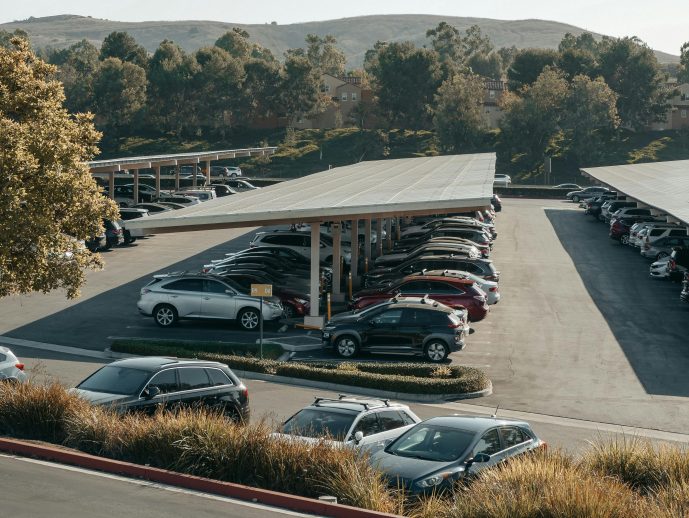Categories more
- Adventures (17)
- Arts / Collectables (15)
- Automotive (37)
- Aviation (11)
- Bath, Body, & Health (77)
- Children (6)
- Cigars / Spirits (32)
- Cuisine (16)
- Design/Architecture (22)
- Electronics (13)
- Entertainment (4)
- Event Planning (5)
- Fashion (46)
- Finance (9)
- Gifts / Misc (6)
- Home Decor (45)
- Jewelry (41)
- Pets (3)
- Philanthropy (1)
- Real Estate (16)
- Services (23)
- Sports / Golf (14)
- Vacation / Travel (60)
- Watches / Pens (15)
- Wines / Vines (24)
- Yachting / Boating (17)
Enclosed Shipping for Electric Vehicles: What You Need to Know
Published
10/21/2025Electric vehicles (EVs) represent a blend of advanced technology, high-quality materials, and powerful electric powertrains that define modern luxury transportation. However, shipping EVs comes with unique challenges that require specialized care. In this guide, we’ll explore what makes transporting EVs different and why enclosed transport is the ideal solution.
Growth of the EV Market in 2025
Global electric vehicle (EV) sales are projected to reach approximately 22 million in 2025, representing a 25% increase from 2024. The USA has seen growth in this market, with luxury EV ownership statistics showing that Tesla holds the highest market share at 48.6% in 2024.
Challenges in Shipping Electric Vehicles
While EVs may look similar to their gas-powered counterparts on the outside, their shipping requirements are quite different. Here are some of the unique challenges associated with transporting EVs:
Battery-Related Challenges
The battery is the largest and most expensive component of an EV, and its capacity dictates the vehicle's power and range. These batteries must meet specific safety requirements, including being charged to approximately 30-50% capacity to minimize fire risk during transport. Experienced companies like BAH Logistics follow strict protocols such as securing the battery, isolating the circuit, and sometimes disabling alarms to ensure safe handling.
Weight Considerations
EVs require specialized enclosed transport and custom packaging designed to handle their size, weight, and unique safety requirements. Heavy models, such as the Tesla Model X or Ford F-150 Lightning, can exceed the typical weight limits of standard car haulers, requiring careful load planning to balance the trailer. This may also limit the number of vehicles a carrier can transport at once.
Regulatory and Cost Challenges
Shipping rules for EVs can differ depending on the state. The U.S. Department of Transportation (DOT) has established comprehensive guidelines for transporting lithium-ion batteries, which are crucial for maintaining EV safety during transit. Compliance with these regulations is essential for handling electric vehicles.
Insurance management
EV components, particularly the battery and advanced sensors, are significantly more expensive to repair or replace than traditional vehicle parts. Comprehensive coverage ensures that high-value electric vehicles are safeguarded against the unique risks during transportation.
Why Choose Enclosed Shipping for Your EV?
Given the challenges of transporting electric vehicles, selecting the right transport method is critical. Here are the key factors that make enclosed transport ideal for EV shipping:
Maximum Protection
Enclosed trailers completely shield your vehicle from rain, snow, hail, and UV exposure, which is especially important because extreme weather can damage sensitive EV components. This protection maintains your vehicle's showroom condition throughout its journey.
Reduced Risk of Damage
The enclosed environment eliminates the risk of cosmetic damage from road debris like gravel, dirt, and flying stones. This is particularly beneficial for high-end vehicles with custom finishes, premium paint jobs, and delicate exterior features that define luxury EVs.
Enhanced Security
Your vehicle remains hidden from view throughout transport, significantly reducing the risk of theft or vandalism. This is particularly valuable for high-value, luxury, or rare EV models that might attract unwanted attention on open trailers.
Temperature and Climate Control
Lithium-ion batteries can degrade when exposed to extreme heat, cold, or high humidity levels. Enclosed transport helps maintain a more stable environment, protecting the battery's health and longevity while safeguarding the vehicle's performance capabilities.
Specialized Weight Handling
Enclosed transport allows for superior weight distribution and typically uses higher-quality equipment designed to accommodate heavier loads. This provides more secure and stable loading for EVs, which often weigh significantly more than traditional vehicles due to their battery systems.
High-Tech Components Care
Modern EVs are equipped with sophisticated technology, including delicate sensors, cameras, LiDAR systems, and autonomous driving equipment. Enclosed transport allows carriers to handle these advanced components with the extra care they require, protecting the intricate systems that make your EV cutting-edge.
Comprehensive Insurance Coverage
Enclosed transport for luxury EVs provides enhanced insurance coverage to protect against any potential damage during transit. This protection offers peace of mind by fully safeguarding your investment.
The Future of Luxury EV Transport
As the premium electric vehicle market continues to flourish, sophisticated owners increasingly demand transport services that match their vehicle's prestige. The complexities of shipping luxury EVs—from protecting battery systems to maintaining climate-controlled environments—require a level of expertise reserved for the industry. Choosing an enclosed transport ensures your automotive masterpiece receives the white-glove treatment it deserves.















